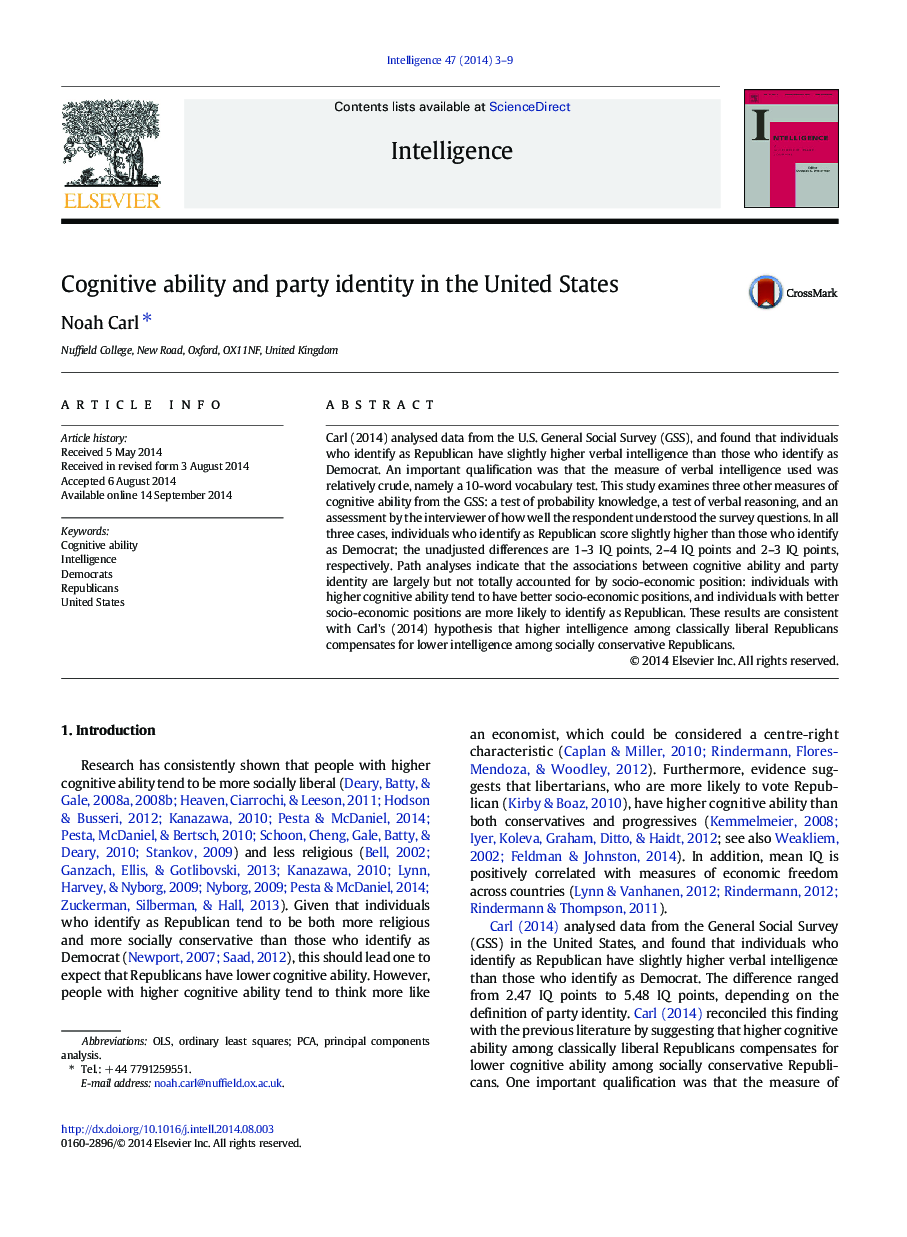| Article ID | Journal | Published Year | Pages | File Type |
|---|---|---|---|---|
| 929046 | Intelligence | 2014 | 7 Pages |
•Individuals who identify as Republican have greater probability knowledge•Individuals who identify as Republican have higher verbal reasoning ability•Individuals who identify as Republican have better question comprehension•Cognitive ability’s effect on party identity works through socio-economic position
Carl (2014) analysed data from the U.S. General Social Survey (GSS), and found that individuals who identify as Republican have slightly higher verbal intelligence than those who identify as Democrat. An important qualification was that the measure of verbal intelligence used was relatively crude, namely a 10-word vocabulary test. This study examines three other measures of cognitive ability from the GSS: a test of probability knowledge, a test of verbal reasoning, and an assessment by the interviewer of how well the respondent understood the survey questions. In all three cases, individuals who identify as Republican score slightly higher than those who identify as Democrat; the unadjusted differences are 1–3 IQ points, 2–4 IQ points and 2–3 IQ points, respectively. Path analyses indicate that the associations between cognitive ability and party identity are largely but not totally accounted for by socio-economic position: individuals with higher cognitive ability tend to have better socio-economic positions, and individuals with better socio-economic positions are more likely to identify as Republican. These results are consistent with Carl's (2014) hypothesis that higher intelligence among classically liberal Republicans compensates for lower intelligence among socially conservative Republicans.
